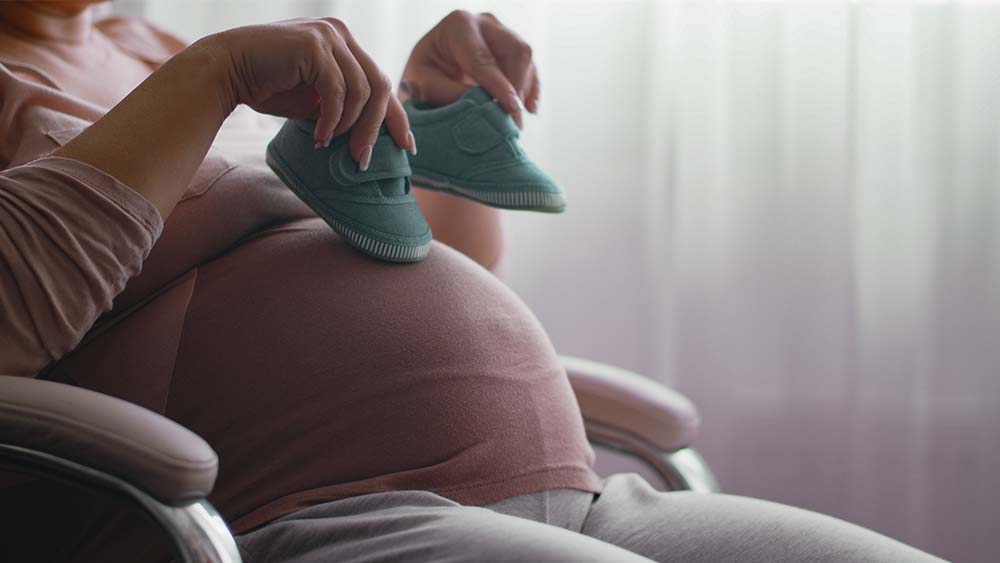Feeling your baby move is one of the most exciting milestones of pregnancy. From gentle flutters to powerful kicks, these movements are a reassuring sign that your baby is growing and thriving. However, changes in movement patterns can sometimes cause anxiety. How do you know what’s normal? When should you be concerned?
This guide will help you understand fetal movements throughout pregnancy, what to expect, and when to contact your healthcare provider.
The Joy of First Movements
After enduring early pregnancy symptoms like nausea, fatigue, and frequent urination, feeling your baby move brings a wave of excitement and reassurance. But as pregnancy progresses, you may find yourself questioning whether changes in movement patterns are normal.
Here’s how your baby’s movements evolve throughout pregnancy and what to do if you notice a decrease in activity.
When Do You First Feel Fetal Movement?
Most expectant mothers begin feeling movement between:
- 14 to 18 weeks (for second-time moms)
- 18 to 22 weeks (for first-time moms)
Initially, these movements may feel like:
- Flutters or "butterflies" in your belly
- Gentle twitches similar to muscle spasms
- Soft tapping or rolling sensations
By week 26, movements become more distinct, and you’ll notice a pattern of when your baby is most active.
How Often Should You Feel Your Baby Move?
There is no exact number of movements to expect daily, but generally:
- Before week 28 – Movements may be irregular.
- Week 28 onwards – You should feel movements every day.
- After week 30 – Babies develop predictable movement patterns.
Tip: Many doctors recommend kick counting from week 28 onward, aiming for at least 10 movements within 2 hours during baby’s active periods.
How Baby’s Movements Change Throughout Pregnancy
Second Trimester (Weeks 14-27)
- First movements feel soft and fluttery.
- By week 22-24, kicks and stretches become stronger.
- Baby may have more active periods and times of rest.
Third Trimester (Weeks 28-40)
- Movements become stronger and more regular.
- Kicks and jabs may cause discomfort as the baby grows.
- Less space in the womb means movements shift from strong kicks to rolling and stretching.
- By week 36+, the baby’s position may influence how movements feel.
💡 Important: While movements may change in intensity, they should never stop completely. If you notice a significant decrease, contact your doctor immediately.
Why Baby’s Movement Might Change
Several factors can affect how much you feel your baby move:
- Your Activity Level – If you're busy, you might not notice movements.
- Sleep Cycles – Babies sleep in the womb for 20–40 minutes at a time.
- Baby’s Position – Movements may feel different if the baby is facing inward.
- Food and Drink – Sugary foods or cold drinks may increase movement.
- Sex – Uterine contractions after intimacy can make baby more or less active.
Try This: If you’re unsure about movement changes, try lying on your left side and drinking a cold glass of water. Most babies respond within 30 minutes.
When to Worry About Decreased Movement
Contact your healthcare provider if:
- You feel fewer than 10 movements in 2 hours.
- Baby’s normal activity suddenly decreases.
- You haven’t felt movement all day.
- Movements stop completely.
- You notice a sudden increase in violent or frantic movements (which could indicate distress).
Possible Causes of Reduced Movement
Some conditions can affect fetal movement, including:
- Low amniotic fluid (Oligohydramnios) – Less cushioning may restrict movement.
- Excess amniotic fluid (Polyhydramnios) – Can make movements harder to detect.
- Fetal distress – A sudden or severe drop in movement could indicate oxygen deprivation.
Kick Counting: A Simple Way to Monitor Your Baby
From week 28 onwards, kick counting can help you track movement patterns.
How to Do Kick Counts:
- Pick a time when baby is usually active (morning/evening).
- Lie down or sit in a quiet place.
- Count each movement, kick, roll, or jab.
- You should feel at least 10 movements in 2 hours.
If you don’t reach 10 movements, try again after eating or drinking. If movement is still reduced, call your doctor immediately.
When to Go to the Hospital
🚨Go to the hospital immediately if:
- Your water breaks (clear, green, or brown fluid).
- You experience heavy bleeding.
- You notice sudden, severe pain with reduced movement.
- You have preeclampsia symptoms (severe headaches, swelling, or vision changes).
Feeling your baby move is a magical and reassuring experience. While movement patterns change, consistent activity is key. Trust your instincts—if something feels off, it’s always better to get checked. Soon enough, those tiny kicks will turn into cuddles in your arms!
Want to track movements easily? Download a kick-counting app or use a simple notebook to note patterns.

